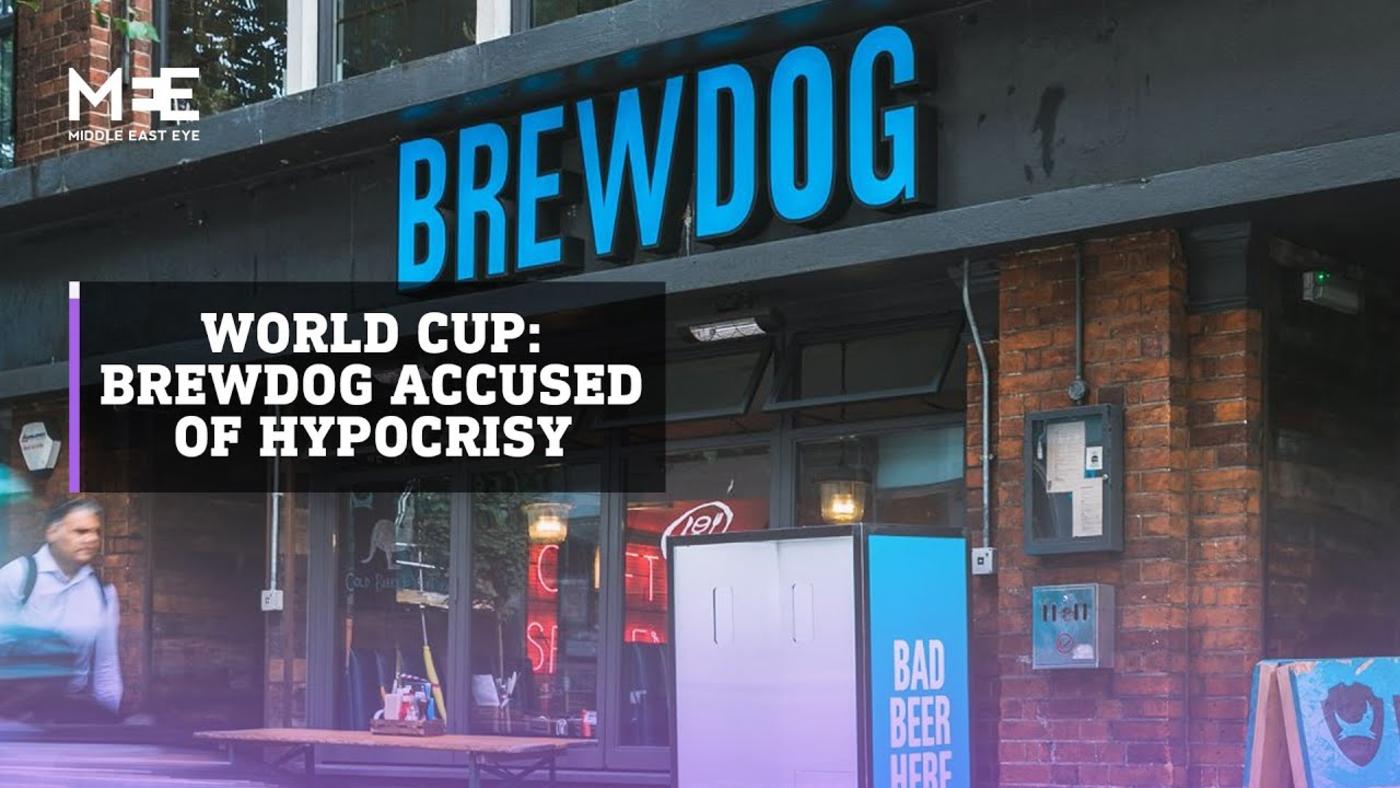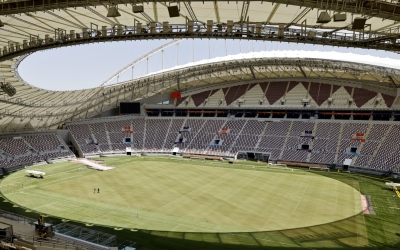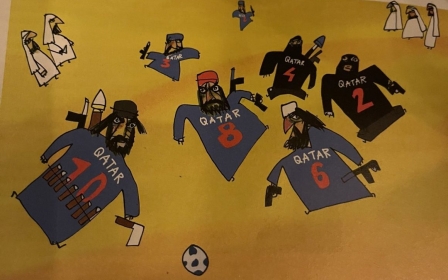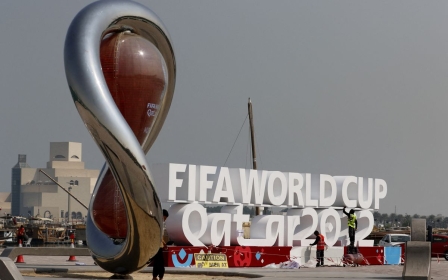World Cup 2022: BrewDog export deal with Qatar emerges after firm criticises host
British craft beer company BrewDog has faced ridicule and accusations of hypocrisy after it launched an ad campaign criticising Qatar's hosting of the 2022 World Cup - despite having signed a deal with the country's main alcohol distributor to sell its products in the country.
The company, which originated in Scotland and has long claimed to support a "punk" ethos, launched an ad campaign attacking Qatar's hosting of the World Cup, which has been criticised over the country's anti-LGBTQ laws, corruption, treatment of migrant workers and women, and lack of democracy.
“First Russia, then Qatar. Can’t Wait for North Korea," read one poster, advertising their Lost Lager beer, while another described them as a "Proud antisponsor of the World F*Cup."
In a statement accompanying the campaign, BrewDog was even more defiant:
“We’re proud to be launching BrewDog as an anti-sponsor of the World F*Cup. To be clear, we love football. So join us," it said.
New MEE newsletter: Jerusalem Dispatch
Sign up to get the latest insights and analysis on Israel-Palestine, alongside Turkey Unpacked and other MEE newsletters
"Let’s raise a glass to the players. To the fans. To free speech. And two fingers to anyone who thinks a World Cup in Qatar makes sense."
The bullish campaign against Qatar has come in for criticism, however, after it was revealed that BrewDog had signed a deal to sell its products in Qatar through the government-backed Qatar Distribution Company.
In response to an inquiry from Middle East Eye for details about the agreement, a spokesperson said that they were "not getting into the ins and outs of commercial relationships".
In an earlier comment to CityAM, however, the company said it did not sell directly to Qatar but "have a relationship with a distributor that sells into multiple Middle Eastern markets, primarily into Dubai but including Qatar”.
Workers rights concerns
BrewDog, founded in Fraserburgh in 2007 by James Watt and Martin Dickie, has more than 100 bars, employs over 2,000 people worldwide and claims to be worth more than $2bn.
But last year the company came under fire after almost 300 current and former staff signed a letter accusing BrewDog of overseeing a culture of "fear" that left employees feeling "burnt out, afraid and miserable".
The letter said a "significant number" of former staff had "suffered mental illness as a result of working at Brewdog".
Several months later, Watt was accused of having engaged in "inappropriate behaviour" at the company with regards to female staff members.
Speaking to CityAM on Tuesday, Bryan Simpson - an industrial organiser at the Unite union - said BrewDog had "a cheek saying anything about workers rights when hundreds of their own workers (past and present) signed an open letter detailing a 'culture of fear' with workers demanding an apology for 'harassing, assaulting, belittling, insulting or gaslighting them.'"
BrewDog has also publicly announced that, despite its criticism of the World Cup, it would still be broadcasting the matches in its pubs, saying "corruption shouldn't stop" people watching the matches and said profits from its Lost Lager sales would be donated to charities.
“No other brewer has invested as much in mental health, well-being, or training as BrewDog. We are a living wage employer, offer sabbaticals, healthcare, and a host of other benefits to all our people," the BrewDog spokesperson told MEE.
"We are the only brewer that shares 50 percent of its retail profits with all bar staff. Where we’ve fallen short in the past we’ve apologised, and we’re a different business today - totally focused on becoming the best employer in our sector.”
He added that the company had "thought long and hard" about whether to show the matches in their pubs, but said that if you "love craft beer and you also love football you shouldn’t be denied the chance to enjoy them together just because Fifa is corrupt".
Middle East Eye delivers independent and unrivalled coverage and analysis of the Middle East, North Africa and beyond. To learn more about republishing this content and the associated fees, please fill out this form. More about MEE can be found here.






